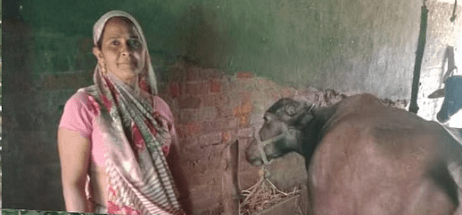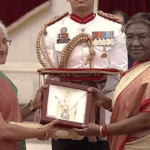Sarita Devi, a resident of Jhikli village in the Kushalgarh tehsil of Banswara district, Rajasthan, has exemplified the transformative power of sustainable agriculture in rain-fed regions. Coming from a background of meager resources and limited income, she has not only improved her livelihood but also become a beacon of hope for others in her community.
The Challenges of Rain-fed Agriculture in Banswara
Banswara, located in the eastern part of southern Rajasthan, is characterized by hilly terrain and a heavy reliance on rain-fed agriculture. The main crops grown in this region include cotton, maize, pigeon pea, urad, moong, and rice. However, due to the scarcity of water, these crops often fail to meet the food and economic needs of the local farmers, leaving many families in a precarious situation.
Empowering Farmers through the Saksham Group
Sarita Devi’s journey towards prosperity began in 2018 when she joined the Saksham group, a community-driven initiative that advocates for equal participation and empowerment of women in all spheres of life. Through this group, she became involved in the Multi-Purpose Plantation Programme, which aimed to replicate the successful ‘Wadi’ model throughout the village.
Training and Resources for Sustainable Agriculture
As part of the programme, Sarita Devi received training on inter-cropping systems and was provided with high-quality traditional seeds and tree species such as bamboo, mango, lemon, and guava. She also learned about soil conservation methods and received assistance in installing submersible pumps for irrigation.
Implementation of New Farming Techniques
Armed with new knowledge and resources, Sarita Devi implemented innovative farming techniques on her 4 bigha land. She started growing vegetables in Poshan Wadi, a practice that not only improved the nitrogen levels and moisture content of the soil but also reduced the cost of farming and increased production.
Impact of Rainwater Harvesting and Improved Farming Practices
One of the key interventions that Sarita Devi undertook was the installation of a rainwater harvesting system on her farm. This ensured a reliable source of water for irrigation, making her farming efforts sustainable for years to come. Today, she earns Rs 65000 per year from selling vegetables and fruits, a significant increase from her previous income.
Diversification of Livelihood Sources
In addition to farming, Sarita Devi also diversified her livelihood sources by engaging in animal husbandry. With the income earned through Mahatma Gandhi NREGA, she bought a cow, whose milk further increased her income. Over time, she expanded her animal husbandry activities and currently owns four buffaloes, two bulls, and one cow, earning a steady income from milk sales.
Success Story: Sarita Devi’s Financial Stability
Thanks to her hard work and the support of the Saksham group, Sarita Devi has seen remarkable growth in her family’s income and farming practices. Her two children are now pursuing B.Ed from a college in Jaipur, a testament to her improved financial stability and the success of her sustainable farming practices.

Img Src:- Krishijagaran.com
Conclusion
Sarita Devi’s story is a testament to the transformative power of sustainable agriculture. Through her perseverance and the support of community-driven initiatives, she has not only improved her livelihood but also become a source of inspiration for others. Her journey highlights the importance of adopting innovative farming techniques and diversifying livelihood sources to achieve financial stability in rain-fed regions.
Click Here For More Success Stories
FAQs
- What is the Multi-Purpose Plantation Programme? The Multi-Purpose Plantation Programme is an initiative aimed at replicating the successful ‘Wadi’ model throughout the village, focusing on sustainable agriculture and livelihood improvement.
- How has rainwater harvesting helped Sarita Devi? Rainwater harvesting has ensured a reliable source of water for irrigation, making Sarita Devi’s farming efforts sustainable and increasing her productivity.
- What is the role of the Saksham group in Sarita Devi’s success? The Saksham group has provided Sarita Devi with training, resources, and support, empowering her to implement innovative farming techniques and improve her livelihood.
- How has Sarita Devi diversified her livelihood sources? In addition to farming, Sarita Devi has engaged in animal husbandry, which has further increased her income and financial stability.
- What is the impact of Sarita Devi’s success on her community? Sarita Devi’s success has inspired other women in her village to adopt sustainable agriculture practices and diversify their livelihood sources, leading to overall economic improvement in the community.
Check Here More Success Stories










